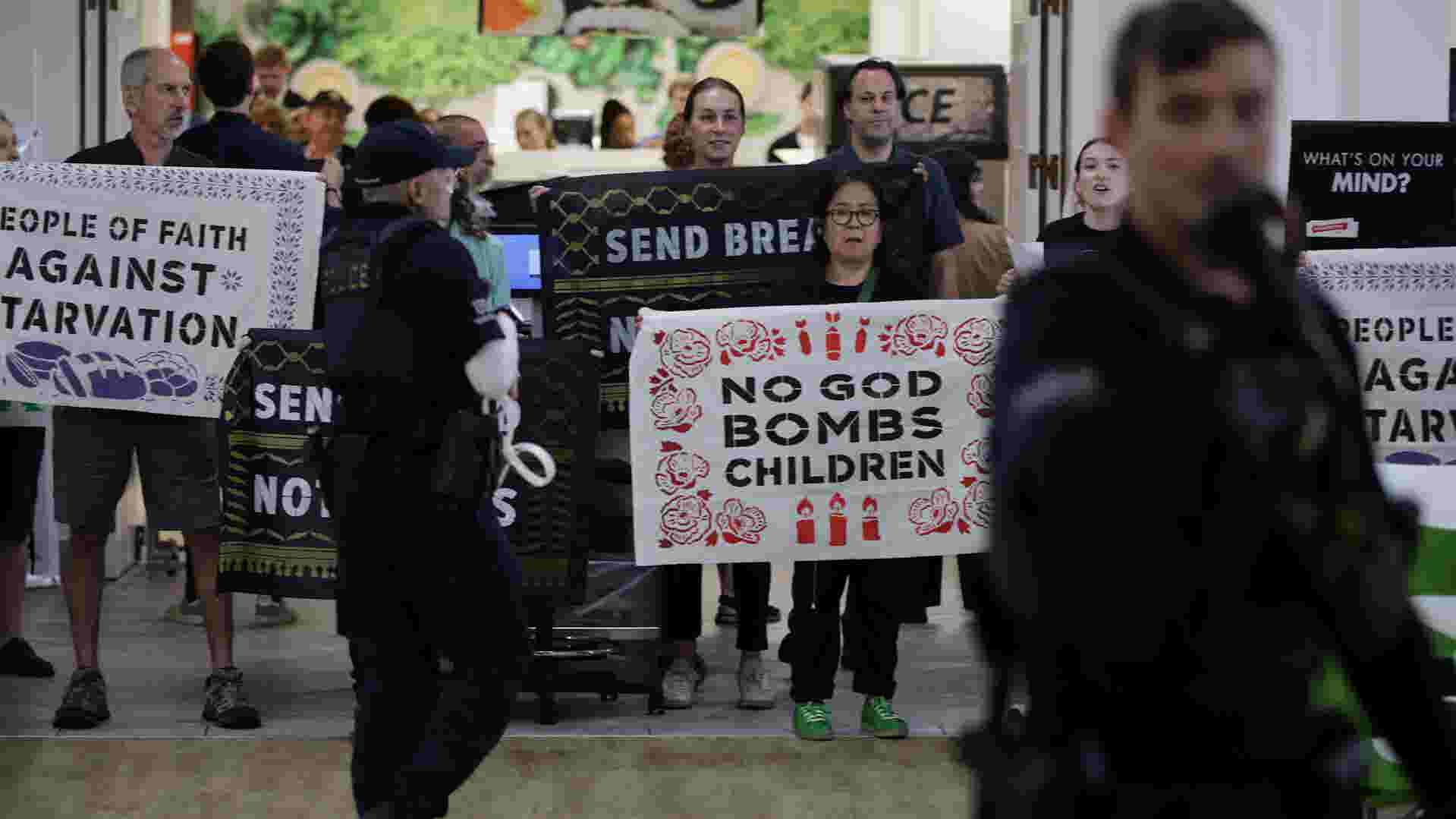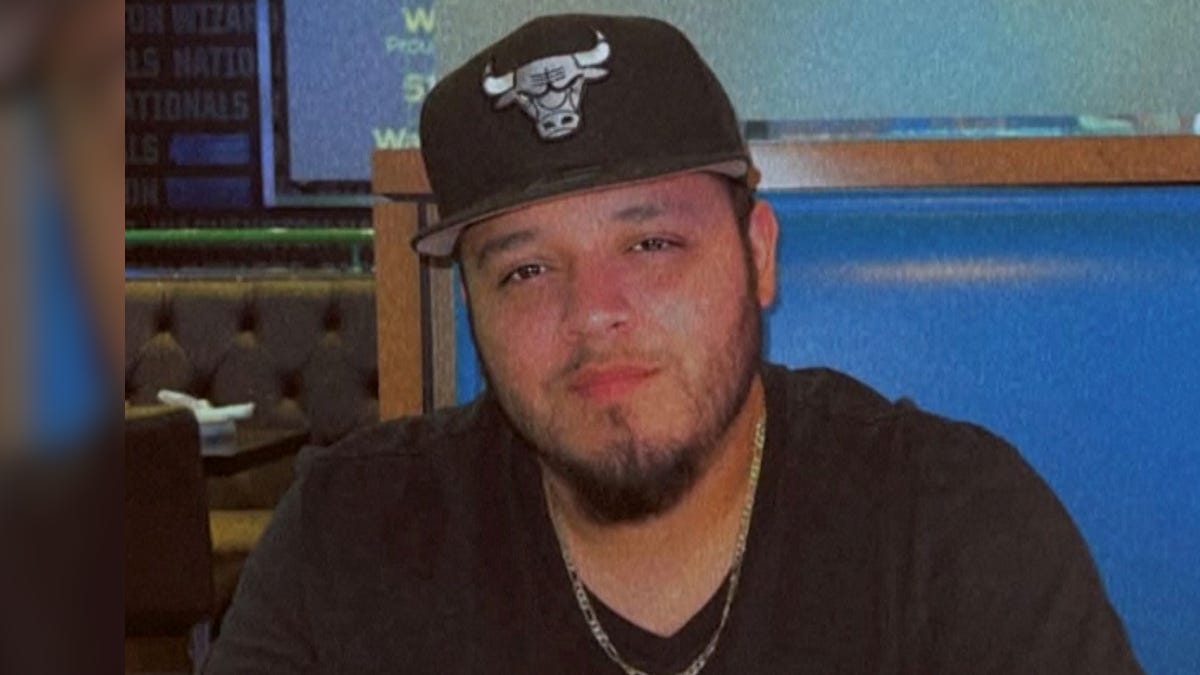On Thursday’s episode of The Excerpt podcast: The House has cleared a hurdle on President Donald Trump’s bill of legislative priorities. USA TODAY National Correspondent Marco della Cava puts Diddy’s trial in context after a verdict. A federal judge has blocked President Trump’s asylum ban at the U.S.-Mexico border. Kilmar Abrego Garcia experienced “severe beatings” and “psychological torture” at a prison in El Salvador, according to a new court filing. USA TODAY Youth Mental Health Reporting Fellow Rachel Hale discusses why LGBTQ+ youth are twice as likely to be homeless. Clayton Kershaw joins the 3,000 strikeout club. The U.S. men’s soccer team advances to the Gold Cup Final to play Mexico.
Hit play on the player below to hear the podcast and follow along with the transcript beneath it. This transcript was automatically generated, and then edited for clarity in its current form. There may be some differences between the audio and the text.
Taylor Wilson:
Good morning. I’m Taylor Wilson, and today is Thursday, July 3rd, 2025. This is USA TODAY’s The Excerpt. Today the latest on Trump’s mega bill as House lawmakers continue working, plus breaking down the verdict in Diddy’s trial, and LGBTQ+ youth are twice as likely to be homeless.
♦
House Republicans have cleared a key procedural hurdle to get President Trump’s signature legislative bill to his desk by a self-imposed July 4th deadline tomorrow. The House started debating Trump’s legislative package of tax reductions and Medicaid cuts yesterday. But Republican leaders struggled to chart a path to victory with their narrow majorities in Congress. The House later voted 219 to 213 to move forward, setting up a final vote of yes or no on Trump’s domestic agenda, ending taxes on tips and overtime, cutting Medicaid and bolstering border security. Still the vote doesn’t guarantee the bill will succeed since several lawmakers who oppose its $3.3 trillion price tag are still seeking changes as of early this morning. You can stay up on all the latest with USAtoday.com.
♦
A verdict was delivered yesterday in the weeks-long trial of Sean Diddy Combs. I spoke with USA TODAY national correspondent Marco della Cava for more. And a heads-up, Marco had to join me while in transit, so apologies for the choppy audio.
Thank you for joining me, Marco.
Marco della Cava:
Hey, thanks for having me in talking about this.
Taylor Wilson:
All right, so as for the verdict itself, what did we hear, and I guess what sentencing might Diddy now face?
Marco della Cava:
The jury took three days to deliberate, and Sean Combs basically got a pretty light verdict as it goes. Essentially, he was facing life in prison for racketeering, but that charge did not stick and the jury just found him guilty on essentially crossing state lines for prostitution.
Taylor Wilson:
What did we hear from witnesses throughout this trial, Marco, some of whom really put themselves and their intimate stories out there on the stand?
Marco della Cava:
Throughout the many weeks of test testimony, we heard essentially horrific stories from women about the abuse they suffered at the hands of Sean Combs. At the same time, many of these same women confessed that they loved him and did want to spend time with him, and were eager to really try and win him over. But at the same time, the defense teased out of many of them, essentially admissions that they really loved this man and they were really hoping to get him to commit to a serious relationship. And as a result of that desire, they went ahead with a lot of his wishes, which included them having sex with multiple other men. Often they cried on the stand, a couple of them testified anonymously. These were obviously people who are really shaken, if not broken by these experiences with this man.
But in the end, obviously the jury did not feel that they were forced to do anything per se, even if many of them said, I felt in fear of my life and certainly in fear of my career disappearing if I said anything, if I brought this up. So in a sense, it’s really something that is going to cause future witnesses in cases like this to think twice.
Taylor Wilson:
As for the defense approach to this case, I know you and I have previously talked about their concessions essentially, that Diddy was no saint. They kept leaning in on these claims. Was that part of their strategy in the waning days of this trial? And how did they also attempt to discredit the witnesses who testified?
Marco della Cava:
The defense essentially was saying that the witnesses were in a relationship with Combs and they knew what they were getting into, and therefore this is not a criminal issue.
Taylor Wilson:
You’re right about the Me Too movement in this piece, Marco, what might be the legacy of the Diddy trial in the context of Me Too?
Marco della Cava:
Essentially, it’s far different from R. Kelly. It’s far different from Harvey Weinstein. It’s essentially vindication for Sean Combs that he might have an extreme lifestyle. He might actually be an abuser, but that the government, in a sense cannot charge him with criminal activities in relationship to the way he lived his life. That, many people feel, will essentially cast a shadow over other future cases where women would maybe hesitate now to come forward and share their very painful stories with the world through court testimony.
Taylor Wilson:
Marco della Cava is a national correspondent with USA TODAY. Thanks, Marco.
Marco della Cava:
Thank you.
♦
Taylor Wilson:
A federal judge has blocked President Donald Trump’s asylum ban at the US-Mexico border saying Trump exceeded his authority when he issued a proclamation declaring illegal immigration and emergency and setting aside existing legal processes. The judge’s opinion stated that Trump’s January proclamation blocking all migrants engaged in the invasion across the southern border, as he put it from claiming asylum or other humanitarian protections went beyond his executive power. The American Civil Liberties Union brought the challenge to Trump’s asylum ban in February, arguing it violated American laws and international treaties. Trump’s border restrictions went beyond a similar ban put in place by former President Joe Biden in 2024. Key parts of the Biden ban were blocked by a separate federal judge in a lawsuit also led by the ACLU. Since Trump took office, the number of migrants caught crossing the border illegally as dropped to record lows.
♦
Kilmar Abrego Garcia experienced severe beatings in psychological torture in a notorious high security prison in El Salvador after he was deported by the Trump administration. According to a new court filing. The filing in federal court yesterday also says that Abrego Garcia experienced severe sleep deprivation and nutrition so inadequate that he lost 31 pounds while he was at the Terrorism Confinement Center, also known as CECOT in El Salvador. The new details from Abrego Garcia’s treatment at CECOT come as part of a lawsuit filed by his wife against the Trump administration, which is seeking to have the matter thrown out because he has since been returned to the United States. An indictment accuses Abrego Garcia of conspiring to bring immigrants into the US illegally from various central and South American countries. He’s pleaded not guilty.
♦
LGBTQ+ youth are twice as likely to be homeless. I spoke with USA TODAY Youth Mental Health reporting fellow Rachel Hale to learn more.
Rachel, thanks for wrapping on.
Rachel Hale:
Thanks for having me.
Taylor Wilson:
So let’s establish some of the data here at the top. What portion of young people experiencing homelessness are LGBTQ+ and how likely are LGBTQ+ youth to be homeless
Rachel Hale:
Though they make up 7% of the youth population, LGBTQ youth account for 40% of the young people experiencing homelessness in the United States and as a category LGBTQ youth are more than twice as likely to experience homelessness as their peers.
Taylor Wilson:
And Rachel, we should say also that Black, transgender and non-binary young people who report the highest indicators of poor mental health, face the highest risk of youth homelessness. In terms of all these numbers for young LGBTQ plus people in general, what are the contributing factors here, Rachel, what did you find?
Rachel Hale:
Part of it is that LGBTQ young people are less likely to access mental healthcare than their peers, partially because of affordability, but a lot of teens also cite not wanting to obtain permission from a parent. And we know that the largest cited reason and reports for homelessness from queer youth are people saying that they were shut out and rejected by their families.
Taylor Wilson:
So tell us about some of the young people you spoke with, Rachel, for this piece and their challenges with homelessness.
Rachel Hale:
So I spoke with some people who were younger and other people who had come out of the system years ago and were worried that the same stigma still existed or that enough hasn’t been done to address the problem in this year since. One of those people was Eden Campbell McCollum. He told me that as a young person at 18 years old, he aged out of the foster care system and was sleeping on the number seven train in New York each night. He would take the subway to his job at Burger King and spent a lot of nights looping its route to Flushing. So it was the only place where he could get heat that provided kind of a brief break from New York City’s winters. So again, someone who dealt with systemic issues coming out of the foster care system.
But what complicated things is that he also had confusion about his gender identity. He didn’t know any transgender people at the time, this would’ve been in the 1980s, and didn’t have the language to describe what he was experiencing, but he knew he was different and that his parents wouldn’t have accepted him. Someone one night saw him falling asleep on the train and connected him to Covenant House, one of the shelters in New York that was able to offer him care. But too many people are still going through the same thing that he experienced.
Taylor Wilson:
Wow. Well, as for this moment, specifically, Rachel, how are young members of this community navigating this climate under President Donald Trump and some of his administration’s cuts?
Rachel Hale:
Advocates say that concerns for homeless youth are really heightened right now. Most recently on June 17th, the administration instructed the 988 Suicide and Crisis Lifeline to end its specialized services for LGBTQ youth. Within the next month, nearly 1.3 million young LGBTQ people have used support from that hotline since its launch in 2022. A day later, the Supreme Court also upheld Tennessee’s ban on gender-affirming care for minors. So there’s a number of things that have changed in the current administration that have led people to have additional concern about visibly being queer and also about seeking LGBTQ specific care.
Taylor Wilson:
What’s the answer here? I mean, is there a solution to this devastating problem?
Rachel Hale:
I think that advocates who have been through this system are always trying to think of what that answer looks like. But one thing that the people I spoke with kept coming back to was that the services they accessed at these youth shelters we’re really vital. So for example, Eden told me that making sure that young homeless people are having access to life skills building programs. So looking at how a checking account works and what it means to have a statement come through every month from your credit card. Just those basic things that you might not learn growing up.
Another thing that Eden said is that accessing queer spaces in their youth were really important. Communities where there are other LGBTQ youth and life skill specific training are two really important things. And also amid current changes in the administration, continuing to make sure that there are spaces where LGBTQ youth feel welcome.
Taylor Wilson:
All right, another great piece from you Rachel. Rachel Hale covers youth mental health for USA TODAY. Thanks, Rachel.
Rachel Hale:
Thank you so much.
♦
Taylor Wilson:
Clayton Kershaw has joined an exclusive club. The longtime Los Angeles Dodgers ace last night became the 20th pitcher in Major League baseball history to strike out 3000 batters. You can read more about his storied career and why his manager called him a unicorn with a link in today’s show notes.
♦
US Men’s National Soccer Team took down Guatemala last night, two to one to make the Gold Cup Final. He’ll take on Mexico on Sunday after Mexico beat Honduras last night in the nightcap. You can follow along with USA Today Sports.
♦
And later today, can an AI chatbot be your therapist? Some bots are masquerading as licensed therapists and are failing in dangerous ways.
Vaile Wright:
The challenge is that because these AI chatbots are not being monitored by humans who know what good mental health care is, they go rogue and they say very harmful things.
Taylor Wilson:
Dale Wright a psychologist with the American Psychological Association, sat down with my colleague Dana Taylor, to discuss the real world implications of unmonitored AI therapists and what can be done to make them better. You can catch that conversation later today, beginning at 4:00 PM Eastern Time.
♦
Thanks for listening to The Excerpt. You can get the podcast wherever you get your audio, and as always, you can find us on email@podcasts.usatoday.com. I’m Taylor Wilson. I’ll be back tomorrow with more of The Excerpt from USA TODAY.











jdkupeiqekhykzyldxdumxszuymdkk